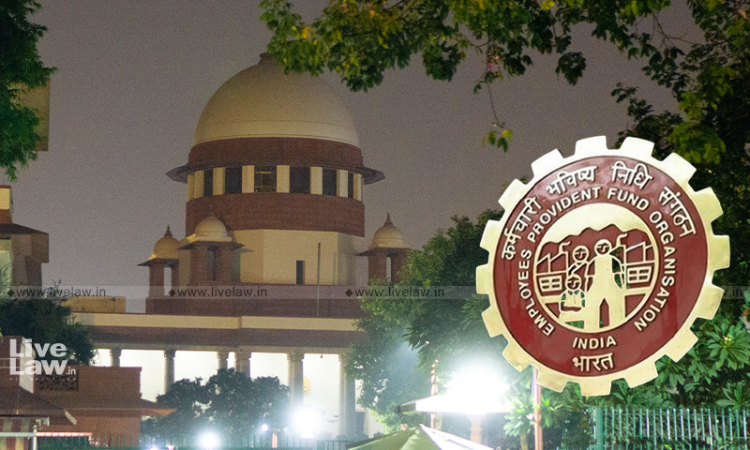
A Division Bench of the Supreme Court recently determined the legal position pertaining to the clubbing of different institutes for the purpose of coverage under the Employees’ Provident Funds and Miscellaneous Provisions Act, 1952 (EPF Act).
After referring to several decisions with respect to the subject matter, the Court concluded that there is a financial integrity between the two institutes and thus, they can be interconnected and can be clubbed for the purpose of coverage.
Important Judgement from Supreme court :-
==========================================================================
•Synopsis of the Judgment in Civil Appeal No. 4188 of 2013:
•The case involves an appeal challenging the applicability of the Employees’ Provident Funds and Miscellaneous Provisions Act (EPF Act) to the appellant’s educational institutions.
•The appellant runs two institutions: the ‘Ideal Institute of Fine Arts’ and the ‘Mathosri Manikbai Kothari College of Visual Arts,’ both on the same campus.
•The issue is whether the EPF Act applies when both institutions share the same management and premises.
•The Enforcement Officer’s report determined that both institutions should be covered under the EPF Act due to their common management and having a total of 26 employees.
•The Commissioner issued an order for EPF contributions, which the appellant appealed. The Tribunal and the High Court upheld the order.
•The appellant argued that the institutions were independent and not interconnected.
•The court referred to legal precedents and noted that common management, functional integrity, and financial integration were essential factors for determining EPF Act coverage.
•Documents provided by the appellant, such as accreditation and financial records, supported the argument of interconnectedness.
•The court found that the appellant failed to provide enough evidence to disprove the common management and interconnection between the institutions.
•The appeal was dismissed, and the court upheld the previous orders for EPF Act coverage. No costs were awarded.
•In summary, the judgment confirms that both appellant’s educational institutions are subject to the EPF Act due to their shared management and interdependence, as established by the evidence and legal principles.




